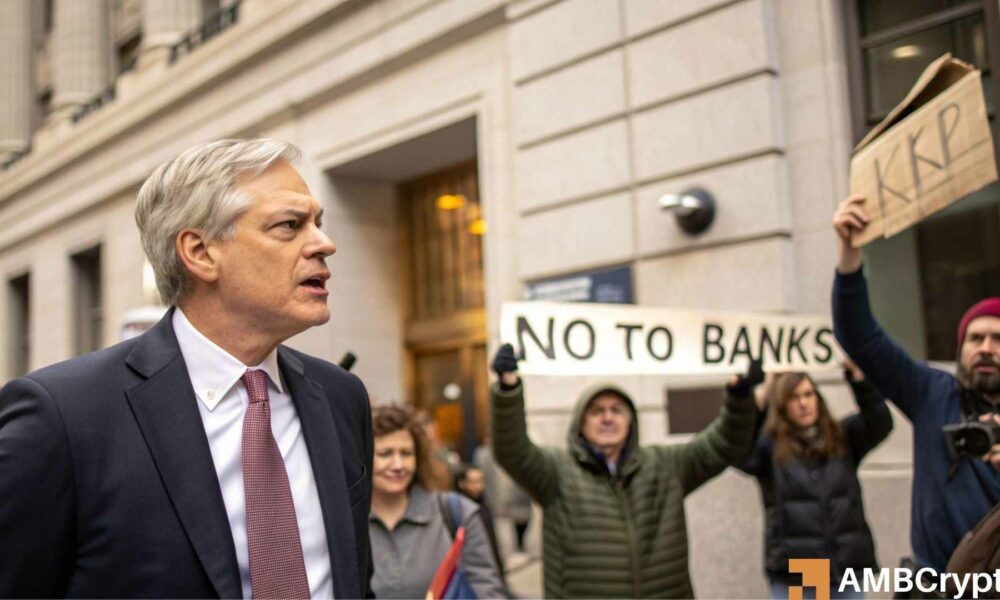Key Takeaways
What is Fed Governor Waller’s stance on stablecoin rewards?
According to him, payment stablecoins are deemed as “currency” that should not earn interest like bank accounts.
How did crypto react to Waller’s comment?
Leaders criticized his stance as pro-banking and outdated, calling it a move that undermines innovation and financial inclusion.
One of the top trending stablecoin headlines this week was the Fed’s willingness to allow issuers limited access to its payment rails.
It was a huge shift proposed by the Federal Reserve Governor Christopher Waller. And the industry leaders overwhelmingly welcomed it.
But Waller, later, had an interview with crypto reporter Eleanor Terrett. He commented on stablecoin rewards that have been slammed by some crypto leaders.
Waller criticized issuers for using exchanges as a “backdoor” to earn interest on stablecoins. He added,
“You’re not holding a currency (stables) for its yield. If Congress wanted you to pay interest, they’d just let you pay interest. Trying to backdoor it is a little funny.”
Waller argued that stablecoins can’t “disintermediate the banking system,” calling it a structural limitation. He later clarified that these were his personal opinions and only Congress could determine the final approach.
Stablecoin rewards divide crypto and banks
The spat between the crypto industry and the banking system intensified after Congress signed the GENIUS Act into law in July.
A few weeks later, a banking association wrote to Congress, asking it to block what it called “loopholes” that allowed stablecoin rewards.
According to them, it was a direct competition that would lead to capital flight from the banking system and cripple loan services to the economy.
In response, the crypto sector, led by the Blockchain Association, slammed the call for amending the GENIUS Act to suit bankers and keep all interest to themselves.
So, unsurprisingly, Fed’s Waller comment was met with similar criticism. Some crypto leaders even viewed him as a lobbyist for the banking industry.
Pro-crypto Senatorial aspirant John Deaton posed,
“‘You can’t disintermediate the banking system.’ Why not? The banking system has failed time and time again. You can sense the threat in his voice and in his body language.”


Source: X
Scott Johnsson, a pro-crypto and Finance Lawyer, called Waller’s argument “meaningless.”
Legislative gridlock extends the conflict
If the plan to amend the GENIUS Act to accommodate their reservations fails, the banking sector would try its luck on the market structure bill, the CLARITY Act (stalled as of writing).
And the friction between the two industries could persist into 2026. For his part, former World Bank President David Malpass told AMBCrypto that key players should collaborate.
He added,
“The U.S. has an opportunity to lead on stablecoins through innovation-friendly crypto policies and policies that defend the dollar’s purchasing power. There’s a global competition for market share in stablecoins.”
Meanwhile, the stablecoin market has surged to $308 billion, and most of the growth came from yield-bearing assets led by PayPal USD (PYUSD).


Source: AMBCrypto/DeFiLlama







